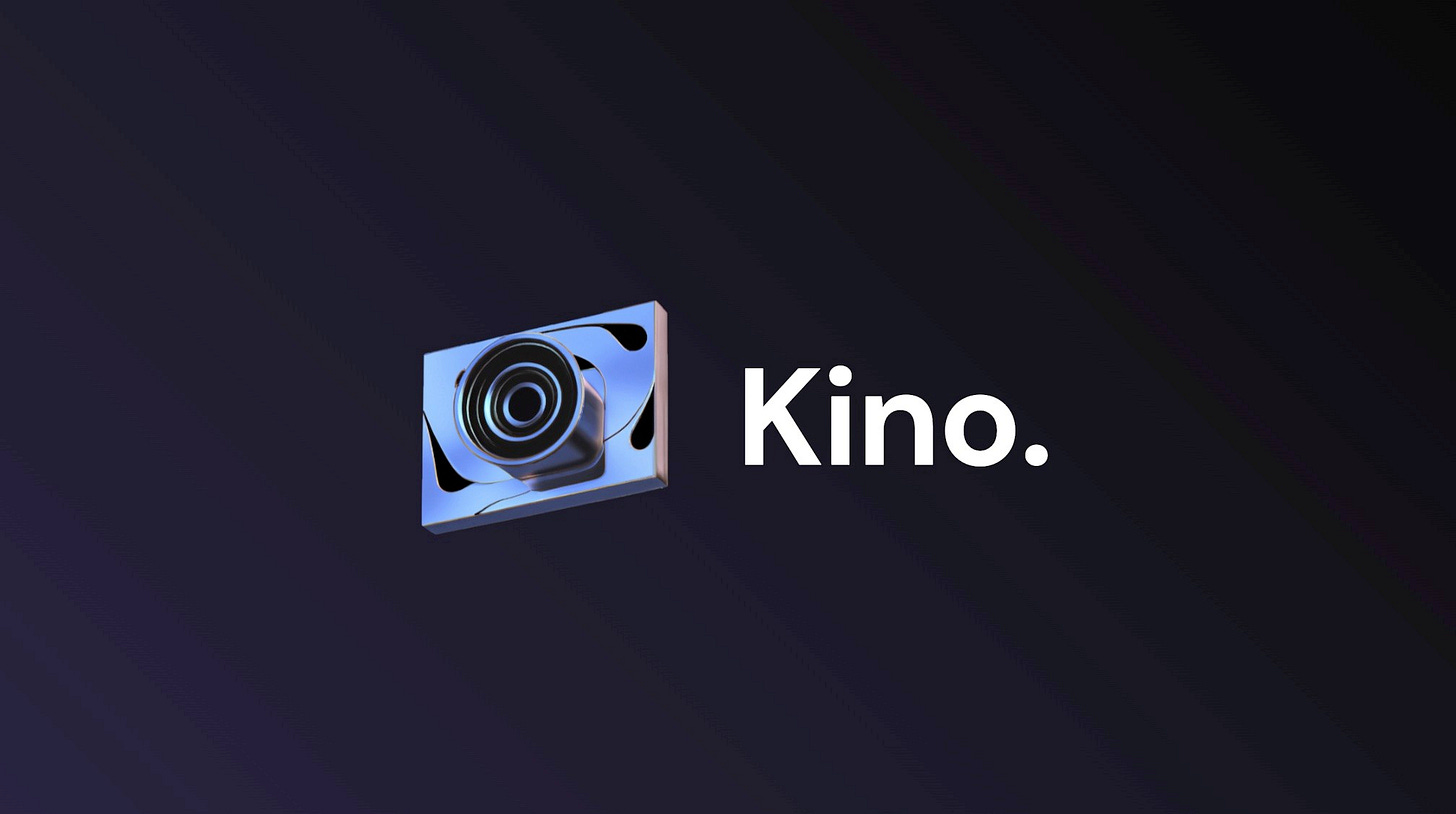After every good movie, I spend some time laying on my bed and daydreaming. I imagine standing beside the stacks of tax forms in Everything, Everywhere, All at Once or sitting in the passenger’s seat of Sally’s yellow station wagon in When Harry Met Sally. Through the magic of film, I get the privilege of sitting in anyone’s shoes, living in their world, and understanding what goes into shaping their perspective. Where Horace Mann coins education as ‘the Great Equalizer’, I see film as ‘the Great Empathizer’.
Something that often goes unnoticed by casual movie-watchers is how highly intentional the process of filmmaking is, and how vital this intentionality is to evoking viewer empathy. On top of this, visual storytelling’s meticulosity demands intense focus and effort, which directly clashes with the already friction-filled process. One of the things that turns me away from video content and towards writing on Substack or posting on Twitter is the struggle I’ve often felt with seamlessness with creating film works.
It is because of this that Kino AI—a startup developing an AI-driven platform for filmmakers—stands out to me as an incredibly interesting private tech company. Kino enables storytellers to effectively organize, log, and search their media to transform the flow of video editing.
brief thesis
The global video editing software market size was recorded at $3.09 billion in 2023. Driven by the increasing demand for video content across social media, entertainment, and enterprises, the market is expected to surpass $5.13 billion by 2032, growing at a CAGR of 5.8% over an eight-year forecast. However, the editing process remains a significant bottleneck, with professional editors and production teams spending an estimated 46% of their project time on post-production work, often involving repetitive tasks.
Kino AI tackles the gap between media management and modern video production by converting unstructured footage repositories into intelligently organized libraries that creators can search using conversational language. By positioning AI as a creative partner, the company focuses on tangible industry problems by offering context-aware automation that enhances, rather than replaces, human creativity. The solution aims to provide filmmakers with efficient and intuitive tools to streamline production, demonstrating how AI can act as precise and collaborative creative technology.
founding story
After long-term exposure to the filmmaking industry, Luke Igel and Wesley Block founded Kino AI in 2022.
Both founders had prior film experience, with Igel having created YouTube content since the third grade and Block having directed a film in high school. After meeting in a Phi Kappa Theta chapter at the Massachusetts Institute of Technology, the two came together in Fall 2020 to collaborate on MIT:Regressions. What initially started as a parody of Adam Curtis’ documentaries evolved into a two-year, full-length documentary project, premiering in 2022. The film explored American technology and industrial policy, covering how various technologies were developed and the institutions that funded them, with a particular emphasis on the role of MIT in scientific research & development.
The project, having required extensive footage organization and editing, highlighted the need for better video management tools. This realization, combined with Block and Igel’s passion for facilitating storytelling led to the creation of Kino AI.
Following the documentary, Kino AI participated in Harvard and MIT’s Prod Program led by Benjamin Spector in late 2022 and was accepted into Y Combinator's Summer 2023 batch. There, Block and Igel transitioned to working on the company full-time and successfully raised seed funding, with investments from Pioneer Fund and Y Combinator. Now based in San Francisco, Kino is developing a comprehensive product to allow editors, producers, executives, and more to focus their time on their creative vision.
product
“Video is an aspirational field”, remarked co-founder Luke Igel in our interview. It is with this philosophy in mind that Kino AI delivers an aspirational product with extensive surface area. Kino’s core offering is an AI-first media asset manager focused on transforming complex and unstructured video footage into an intelligently-organized, easily navigable system.
logging & metadata generation
Kino AI uses artificial intelligence to automatically extract metadata from footage. Scenes are broken down by identifying visual elements using computer vision and leveraging natural language processing to transcribe audio in English, Spanish, Portuguese, French, and Korean with speaker separation.
The resulting metadata includes content tags, footage descriptions, facial recognition data, location data, temporal information, technical file details, and more. These are generated with the focus of capturing the nuance of the footage in order to create a rich, searchable index. By superseding manual logging methods, Kino’s approach saves creators significant time and provides significant insight into media libraries.

search functionality
Kino’s natural language search allows users to filter by any metadata fields and to describe moments as they remember them to search for specific scenes across their whole footage library. This allows Kino to excel at precise, highly visual searches with complex queries that would be impossible with traditional asset management tools.

integration
Kino AI integrates seamlessly with major non-linear editing systems (NLEs), most notably Avid Media Composer, Adobe Premiere Pro, and DaVinci Resolve. With this integration, users are able to take the video directly from their search into their preferred editing environment, with markers placed at locations in the footage that users select.
Kino works with various storage solutions for flexibility regardless of a team’s production environment. This includes cloud storage, external hard disks, and Network Attached Storage (NAS) systems. One of its key features is its ability to automatically backup files from SD cards to pre-designated locations, compatible with these storage options. After ensuring the safety of the assets, Kino can reorganize files into a custom folder structure that is reflective of the team’s preferred storage setup.
security & processing
Recognizing the nature of sensitive footage, Kino AI places security at the centre of its design. The company understands that creators are highly concerned with the privacy of their sensitive material, especially as Kino processes and analyzes all frames and audio segments of uploaded footage. As such, Kino offers local machine processing, encrypted metadata storage, and enterprise-grade security protocols, including:
Fine-grained access privileges, allowing administrators to control who can access specific data or functionality
Multi-factor authentication to confirm user identities
Support for air-gapped systems, in which the network is physically isolated from networks
At its current stage, Kino AI is in private beta and focusing on high-touch enterprise deployment, relying on hybrid on-premise deployment for security-sensitive clients. In hopes of maintaining focus on their core enterprise offering, the company has paused the self-serve version of the product for the near term, with plans to re-release soon.
Kino AI redefines media asset management, positioning itself as more than just a tool—it's developing a new paradigm for how creators interact with their visual content. By reducing technical friction, filmmakers get the freedom to focus on actualizing film as an empathy-driven medium and crafting stories that resonate.
shoutouts
Huge thank you to Luke for sitting down with me to share his story about founding Kino. It was wonderful to hear his wealth of knowledge about the film industry and learn about Kino’s history directly from the source!
Shoutout to Vincent for giving me feedback on this article! This was my first time writing about startups, so the guidance from someone deeply immersed in VC meant a lot.




